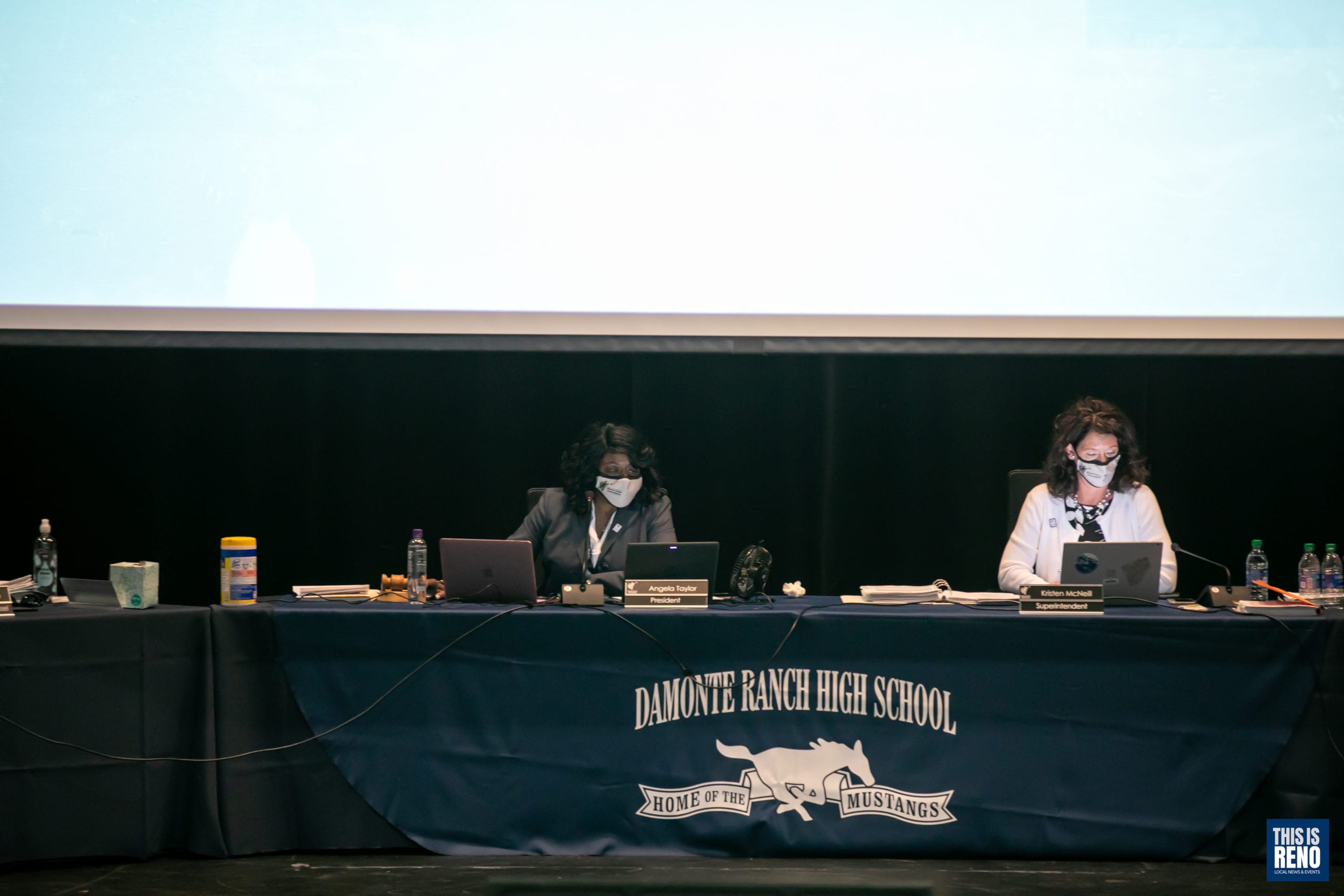Washoe schools Superintendent Kristen McNeill and Board of Trustees President Angie Taylor addressed today during a media briefing future board meetings and the proposed changes to board policy 4500 governing employees’ rights to free speech.
Board meetings to start earlier
For the time being, board meetings will begin at 2 p.m. This, according to Taylor, is necessitated by the length of board meetings—which have often stretched to more than eight hours during the pandemic, as the board grapples with its usual business along with agenda items resulting directly from the COVID-19 pandemic.
Public comment periods will still take place at 4 p.m. to accommodate people who cannot arrive to meetings earlier. Public comments may also be made via email.
Speakers during public comment periods have become increasingly animated in recent months. This was especially the case during the most recent board of trustees meeting, during which some commenters who were critical of the board and its actions violated state-mandated COVID-19 mitigation directives and were disruptive to the point of sending the meeting into a brief recess.
“As a reminder, all attendees will be required to wear face coverings to adhere to the governor’s directives and physical distancing, which fell apart a little bit last time,” Taylor said. “We want physical distancing to be strictly enforced because we want people to be safe.”
Employee speech restrictions still under consideration
During its Tuesday meeting, the board passed its policy 1310 concerning political speech on school property and opened the issue for a 13-day public comment period. Its policy 4500 concerning employee free speech rights, however, was sent back to the board’s policy committee for further review.
Proposed changes to the policy would prohibit district employees from speaking to the media about work-related concerns or complaints, despite the fact that employees in general—and public employees, specifically—have a right to speak freely with the press without first seeking approval from their employers.
Critics have called the policy blatantly authoritarian, and experts say it’s illegal and legally unenforceable.
Taylor called the policy “complicated” and said, “We certainly don’t want teachers to feel as though their freedom of expression is being limited. At the same time, we recognize that the district, in and of itself, has a voice as well.”
In regard to the would-be workplace gag order imposed by the policy revision, she said, “I think some clarity around what that looks like is part of what we’ll be looking at again as we review policy 4500. One of the .. public comments was from Phil Kaiser, who’s the president of the Washoe Education Association, our teachers’ union … and we know there are some concerns around that, and we wanted more clarity around that and to ask some questions as well.
“We’re going to dig into it a little bit more,” she added “So, we don’t have a resolution yet … because there’s some things we need to work through.”
McNeill echoed Taylor’s explanation of the extended review of the policy, adding that she felt the district’s legal counsel had done a good job in drafting it.
“I will say our chief counsel and the office of general counsel spent a great deal of time researching both board policy 1310 and 4500, as was directed by our board,” McNeill said. “They really did a deep dive—looked at other districts across the country, looked at research. So, I believe very much in the work of our chief counsel [Neil] Rombardo and his team and what they were able to put forward—but we also want to make sure that we have the input from our employee associations…”

